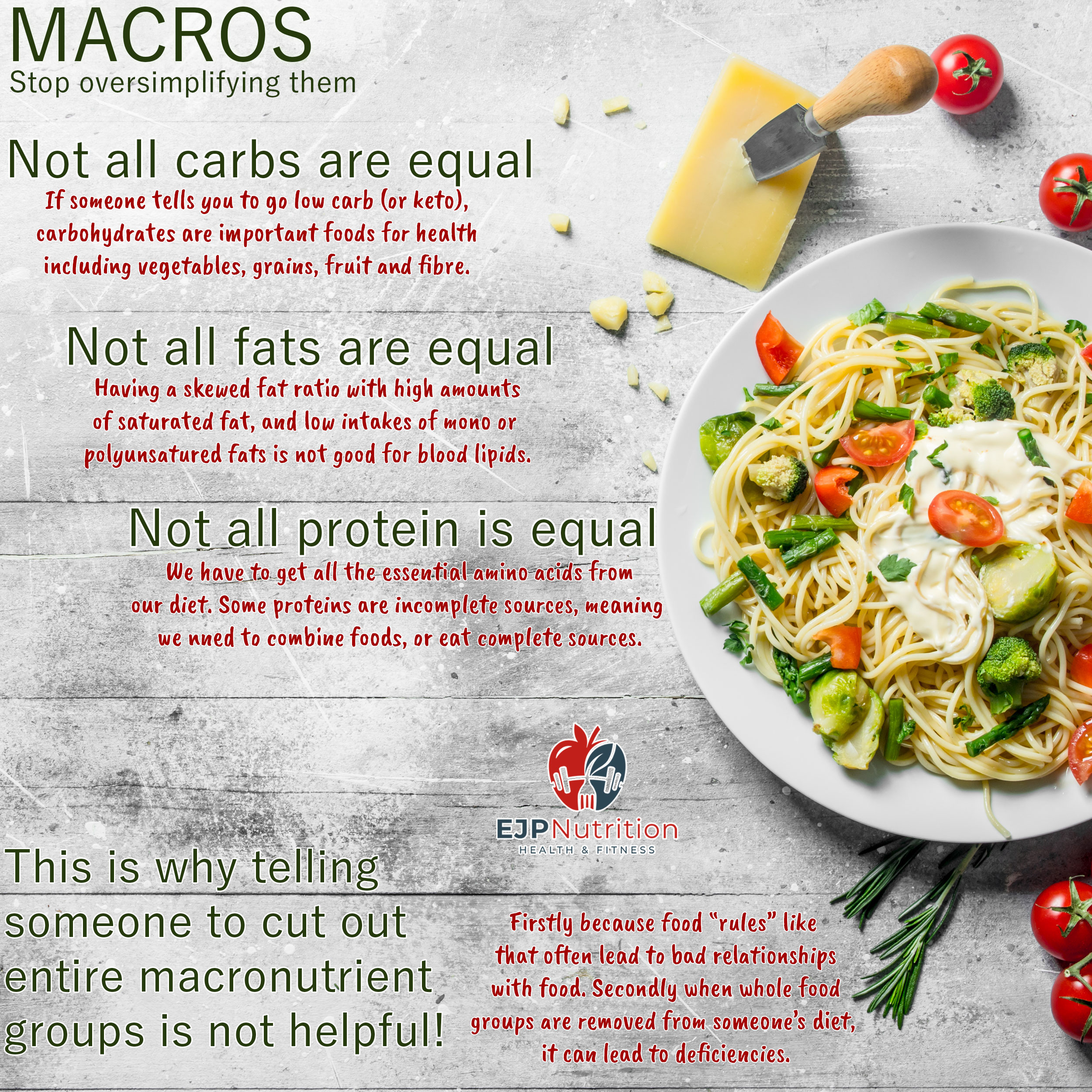Cut out carbs. Only eat low fat. We’ve all heard numerous versions of this advice when it comes to our diet. But that is overly reductionist, and doesn’t account for the variation within each macronutrient group.
Not all carbs are equal, and neither are all types of fat or protein.
Carbohydrates encompass a large and diverse range of foods. A lot of the negative press is around sugar and processed foods. But other types of carbohydrate include fibre, which most of the population don’t eat enough of and is important for overall health and gut health. It also includes all fruit and vegetables, both of which contain a wide array of important vitamins and minerals.
If someone isn’t lauding low-carb, they might be telling you to go low-fat instead. The problem here we actually need a certain amount of dietary fat for optimal health. But different types of fat have different effects on our bodies. We have to get essential fats from our diet, such as omega 3 and omega 6. But high levels of saturated fat are linked with an increased CVD risk.
The other consideration when cutting carbs or fats, is what are you replacing them with? If it’s for weight loss or for health then what you substitute in, might not actually be “better”. For example I wouldn’t consider removing vegetables (carbs) or wholegrains (fibre) and replacing that with some type of saturated fat to be an improvement on your diet, whatever your goal.
The only time I’d ever totally remove something would be if you’re allergic, or you simply don’t like that taste! Or if you’ve had specific medical advise – by specific I mean from a doctor, not an online guru!
I know you probably get bored of reading about how a healthy diet is about balance and variety. The grey area, and the nuance in nutritional science isn’t at all sexy. But black and white absolutes are misguided when talking about macros which each include so many different types of food. Not to mention blanket ‘rules’, extreme diets or cutting out whole food groups will probably be unsustainable, and can lead to deficiencies in your diet.
I write more on protein generally, so haven’t talked about it in the main points above. It’s less divisive than carbs and fats tend to be too! But the difference in types is complete or incomplete sources. The former include all the essential amino acids we need to get from our diet. The latter are missing or low in at least one EAA, meaning you’d need to combine foods together to get the full profile, or supplement.
(Reposted from Instagram)


